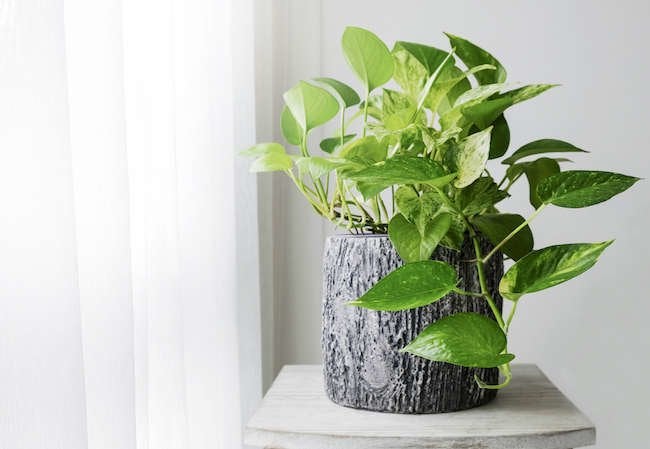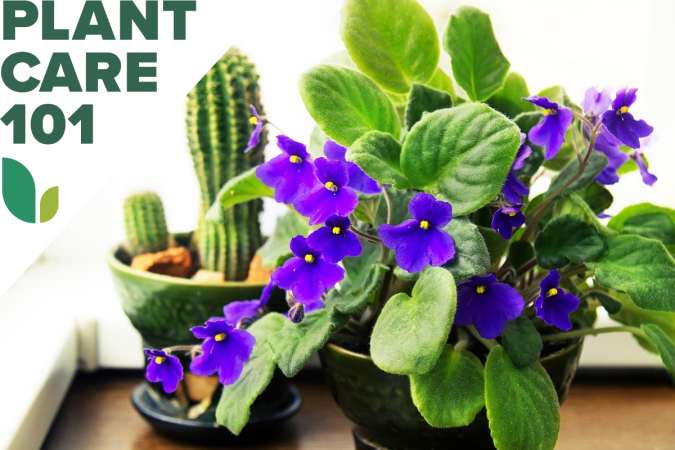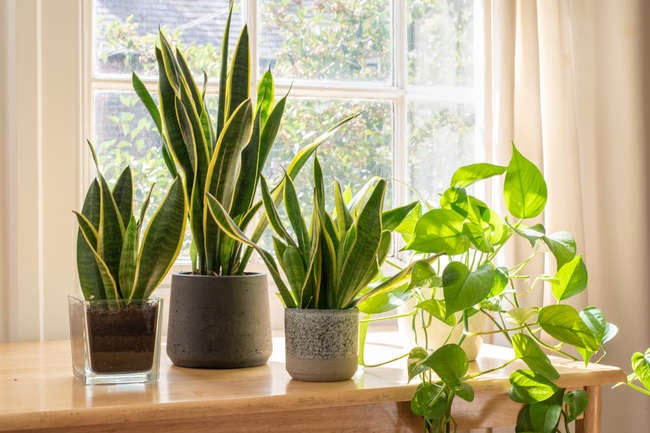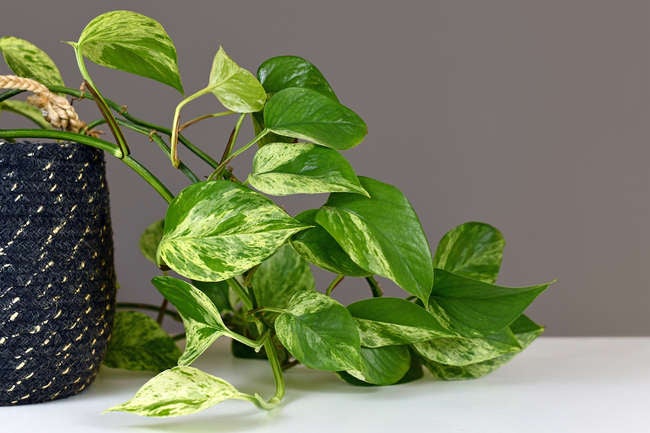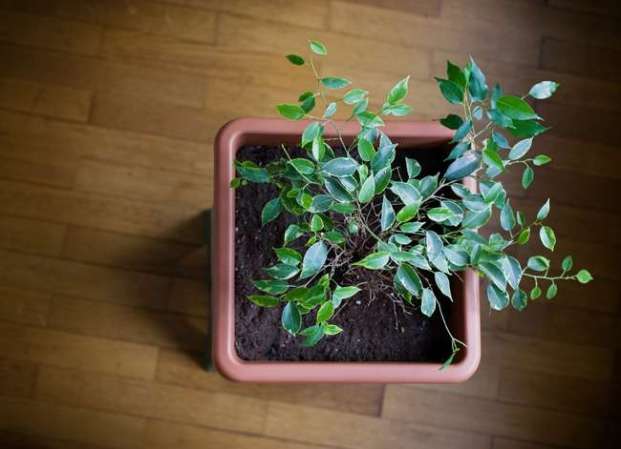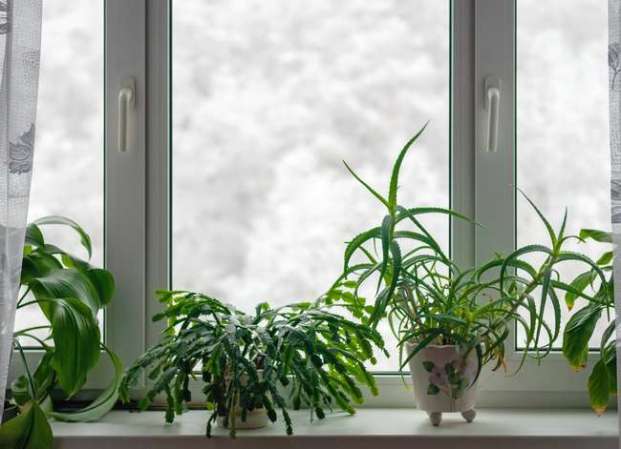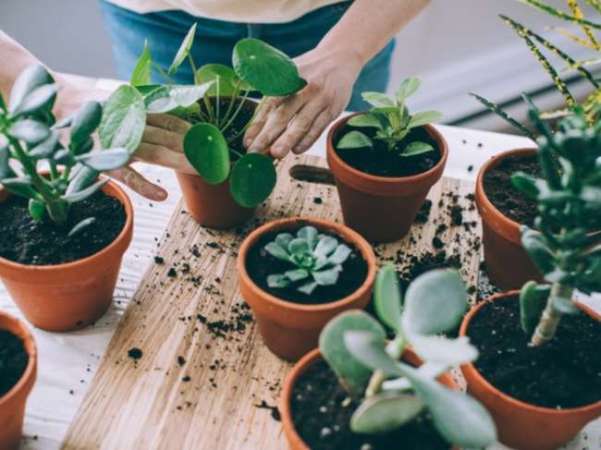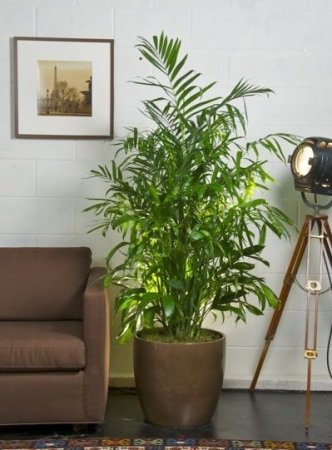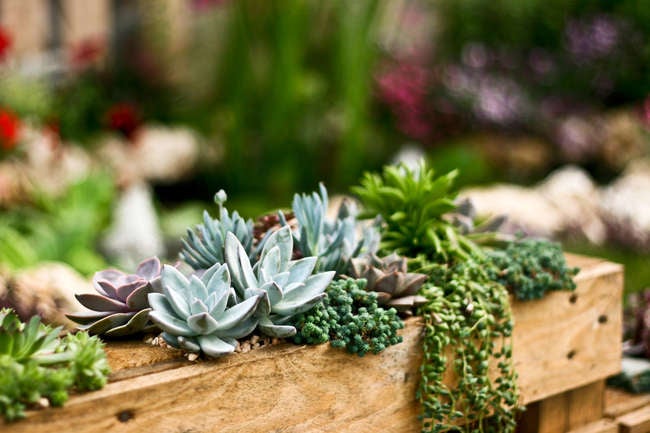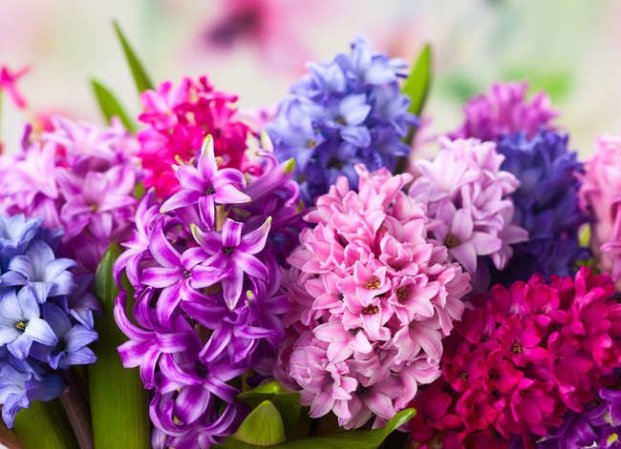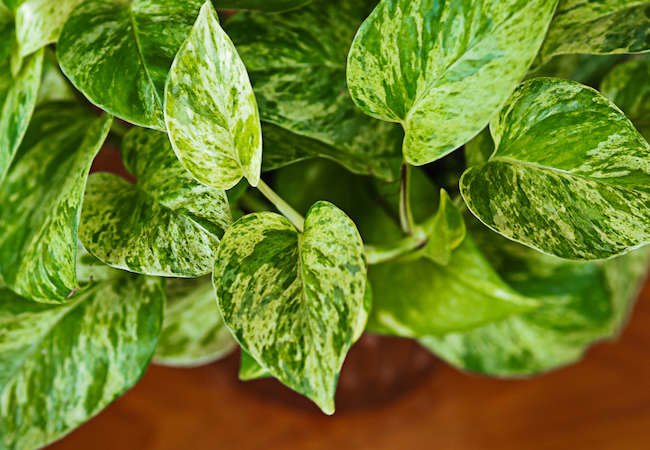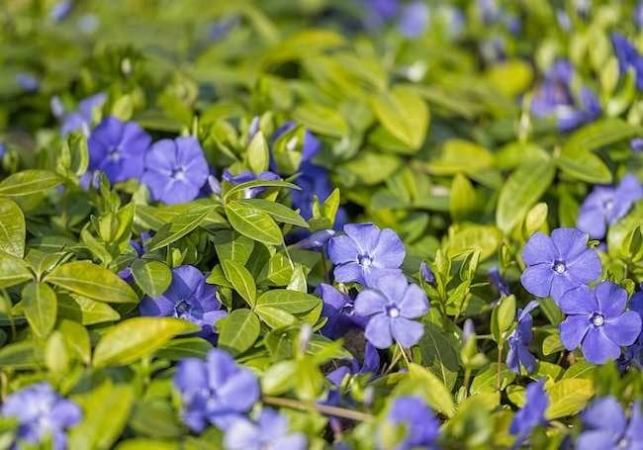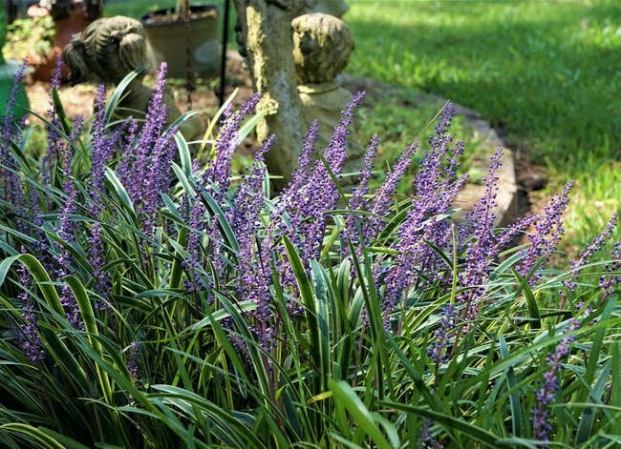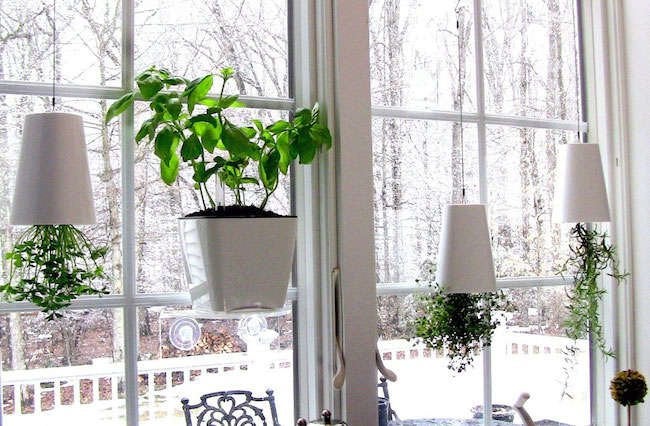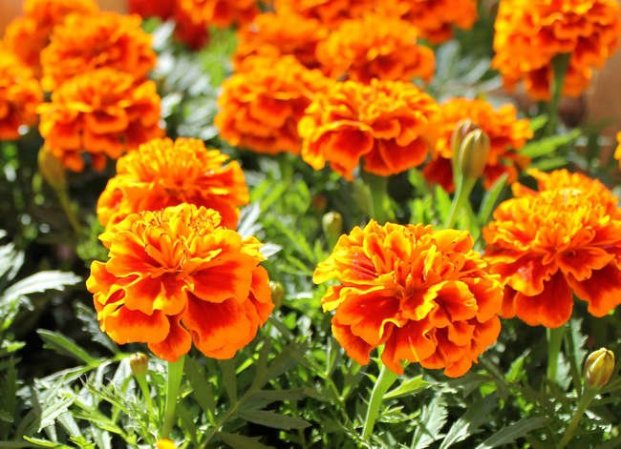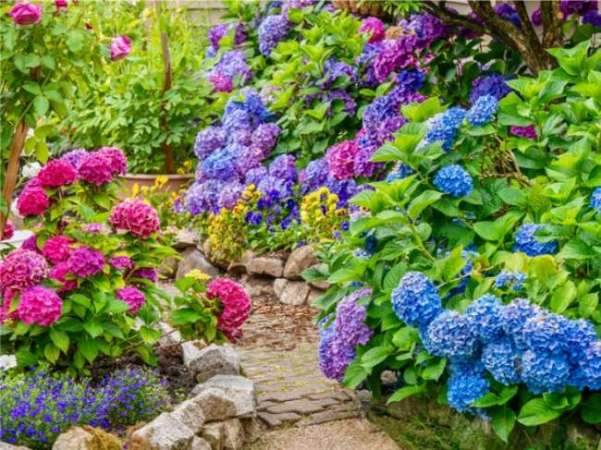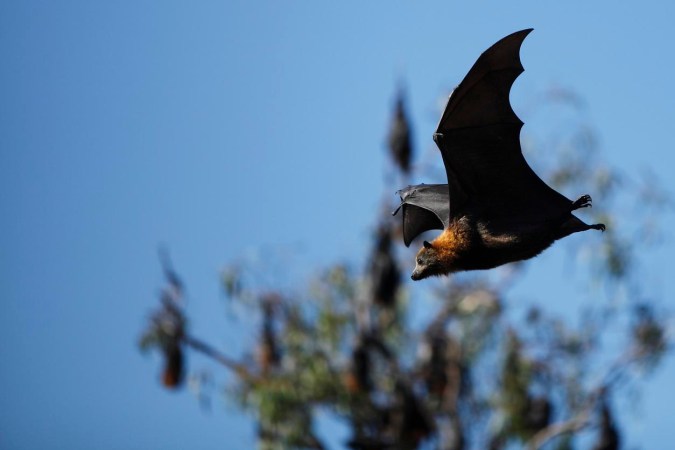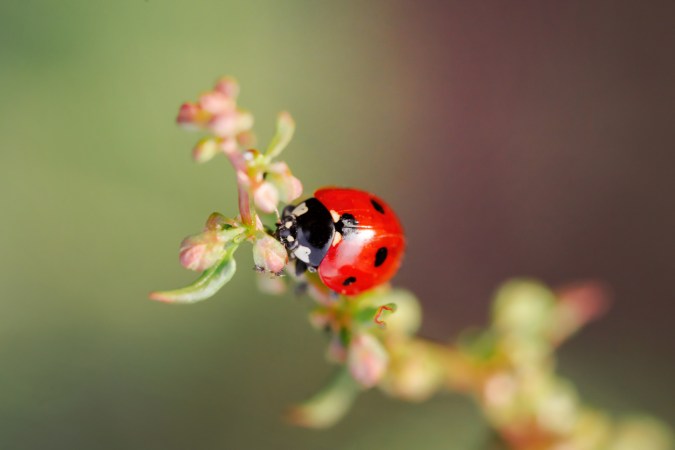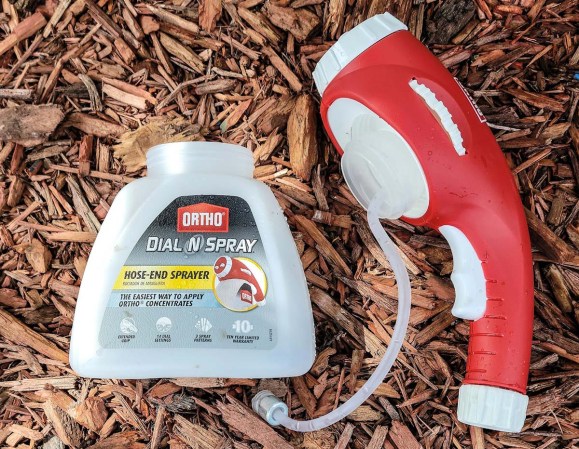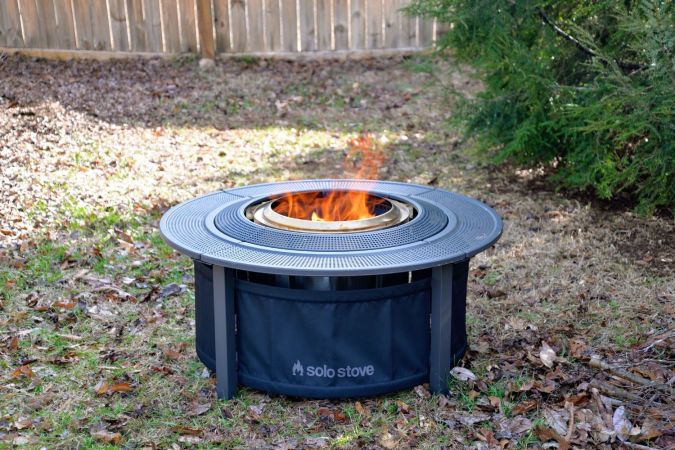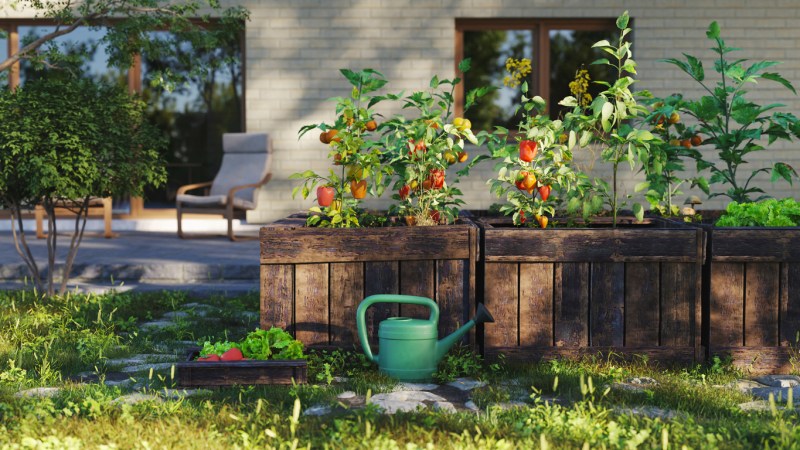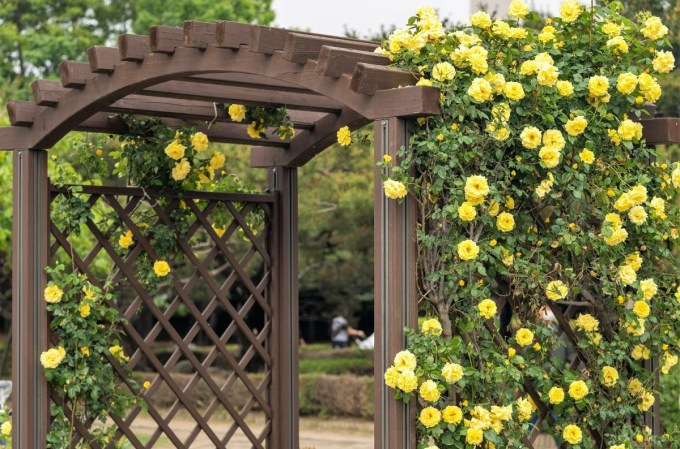We may earn revenue from the products available on this page and participate in affiliate programs. Learn More ›
Can Houseplants Really Clean the Air?

It’s no secret that there are many benefits for keeping houseplants around your home. Just a few potted plants can add life to drab spaces, boost your mood and focus, keep your house cool, and even be used as medicine. However, one of the most commonly touted benefits of houseplants—that they can clean the air and remove toxins—isn’t quite as straightforward as it sounds.
In 1989, NASA published a study that found houseplants as a promising solution for removing volatile organic compounds (VOCs) from the air. For years, folks selected specific houseplant species believing they would clean the air inside their homes. But new research has determined that’s not quite the case. While the NASA study did prove that certain types of houseplants can purify the air, it was done in a contained environment that doesn’t accurately reflect a house. For houseplants to clean the indoor air, you’d need more of them than you have the room for. Keep reading to learn about some of the houseplants NASA studied—even if they don’t clean the air like you expected, they’re easy to care for and offer other benefits.
Dracaena
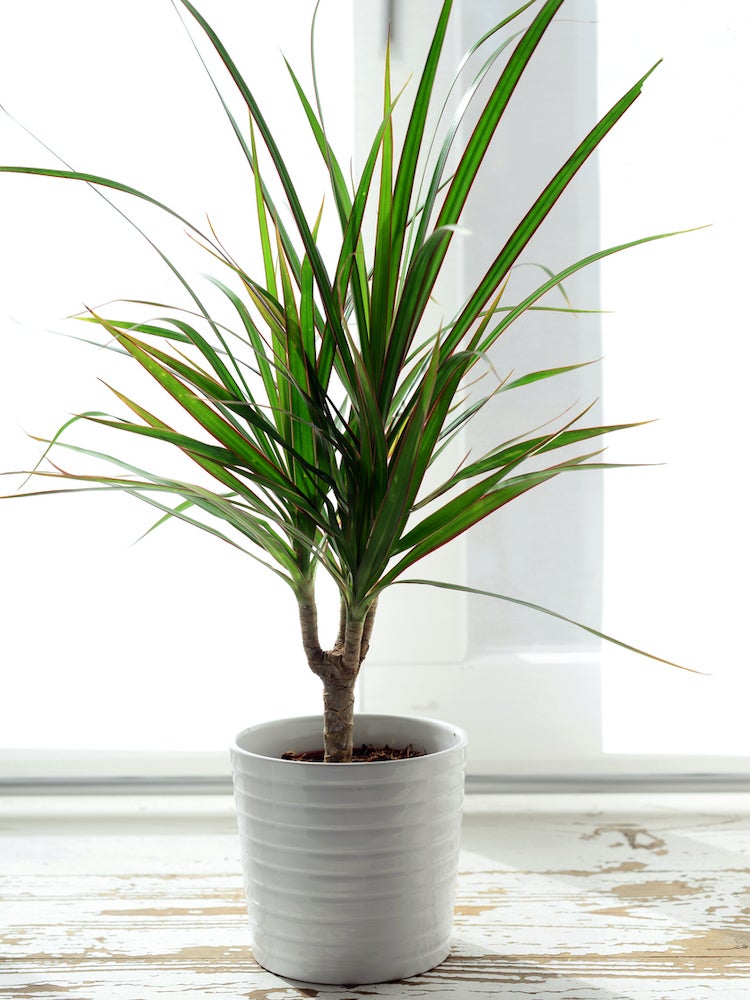
Popular dracaena varieties of dracaena include Janet Craig (Dracaena deremensis), Warneck (Dracaena deremensis ‘Warneckii’), Cornstalk (Dracaena fragrans ‘Massangeana’), and Red-Edged Dracaena (Dracaena marginata). Bushy, spiky-leaved dracaenas are very easy to care for, tolerating low humidity, infrequent watering, and low light.
Philodendron
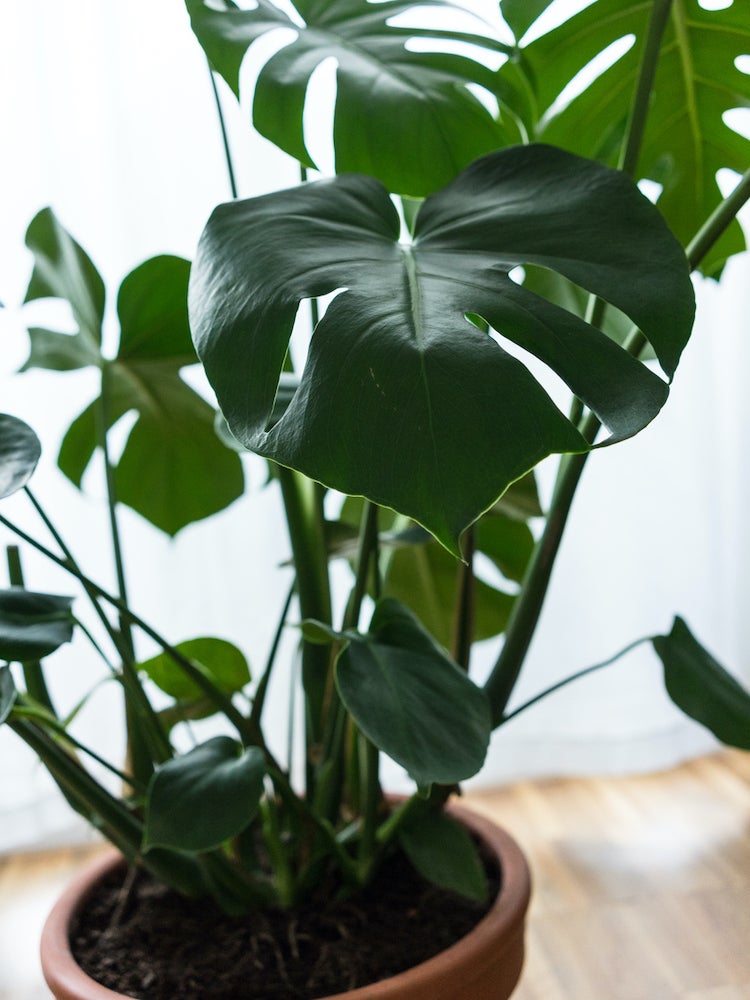
Long popular as houseplants, several varieties of philodendron excel as air fresheners, including Heartleaf (Philodendron scandens ‘oxycardium’), Elephant Ear (Philodendron domesticum), and Selloum (Philodendron selloum). Able to thrive even on minimal care, philodendrons have glossy, bright green foliage and can grow quite large.
English Ivy
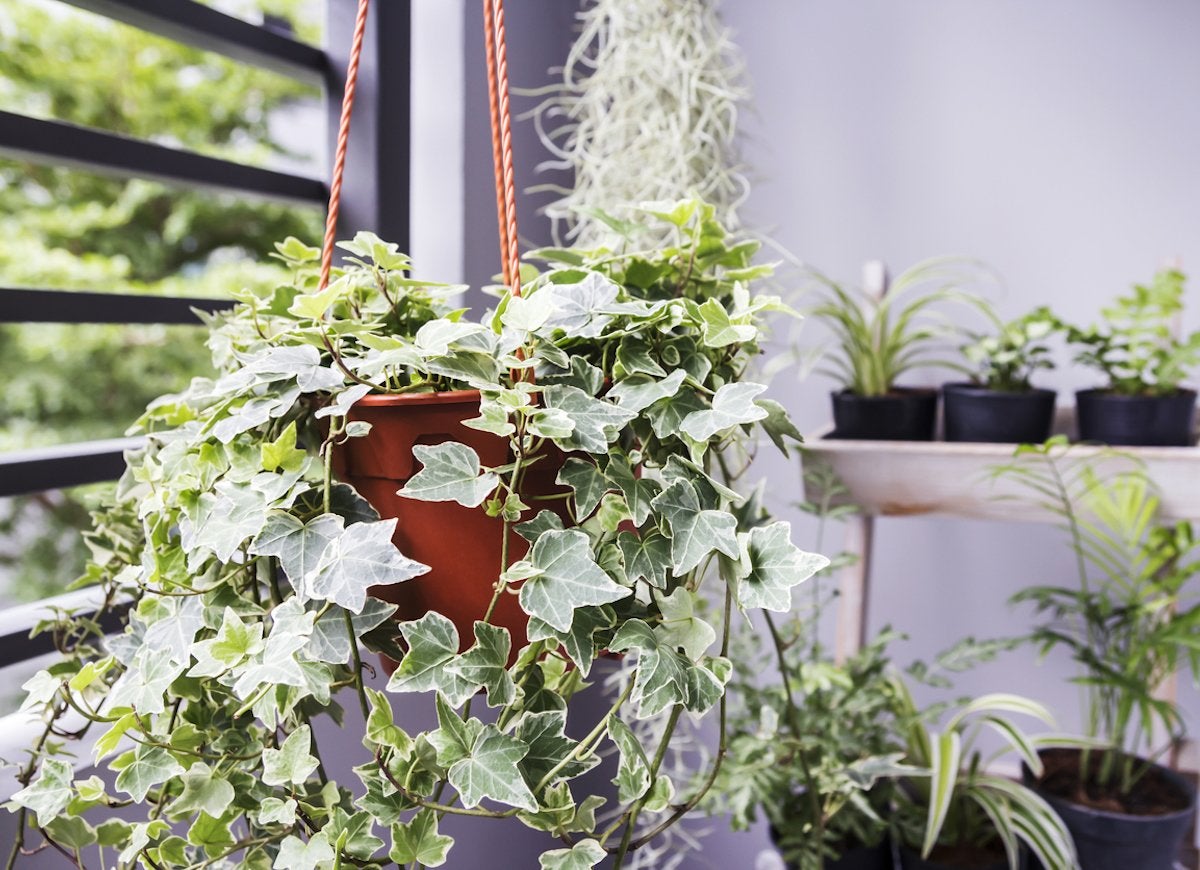
A versatile houseplant, English Ivy (Hedera helix) grows well in pots or hanging baskets and can be trained to grow on a trellis or railing. While it can be an aggressive grower, regular pruning will keep the plant contained to virtually any size and shape.
Related: 11 Signs of an Unhappy Houseplant (and How You Can Help)
Spider Plant
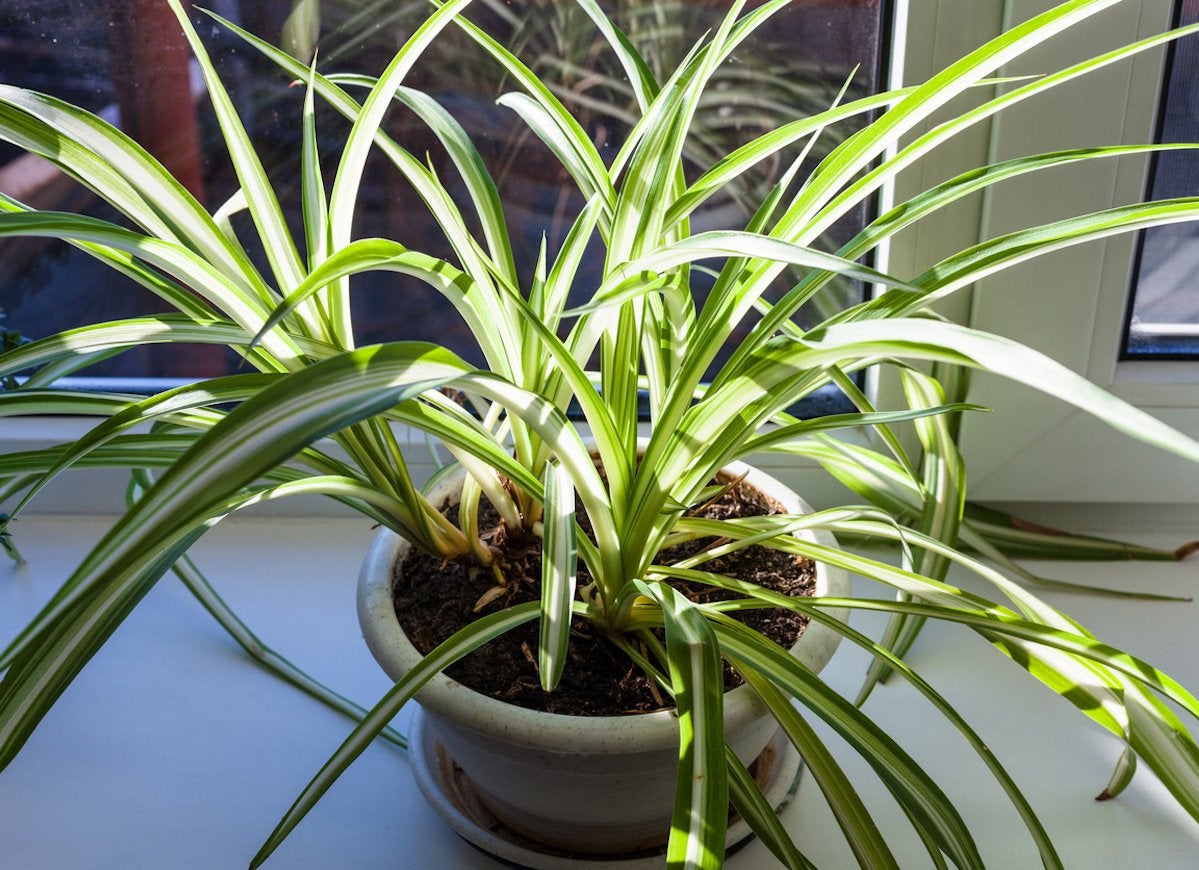
The Spider Plant (Chlorophytum comosum) is one of the easiest houseplants to grow and share, as the species regularly produces “baby spiders” at the end of long, wiry stems. Since they perform best in moderate sunlight and prefer humid environs, Spider Plants are recommended for bathrooms or kitchens.
Related: The 10 Best Plants for Your Bathroom
Peace Lily
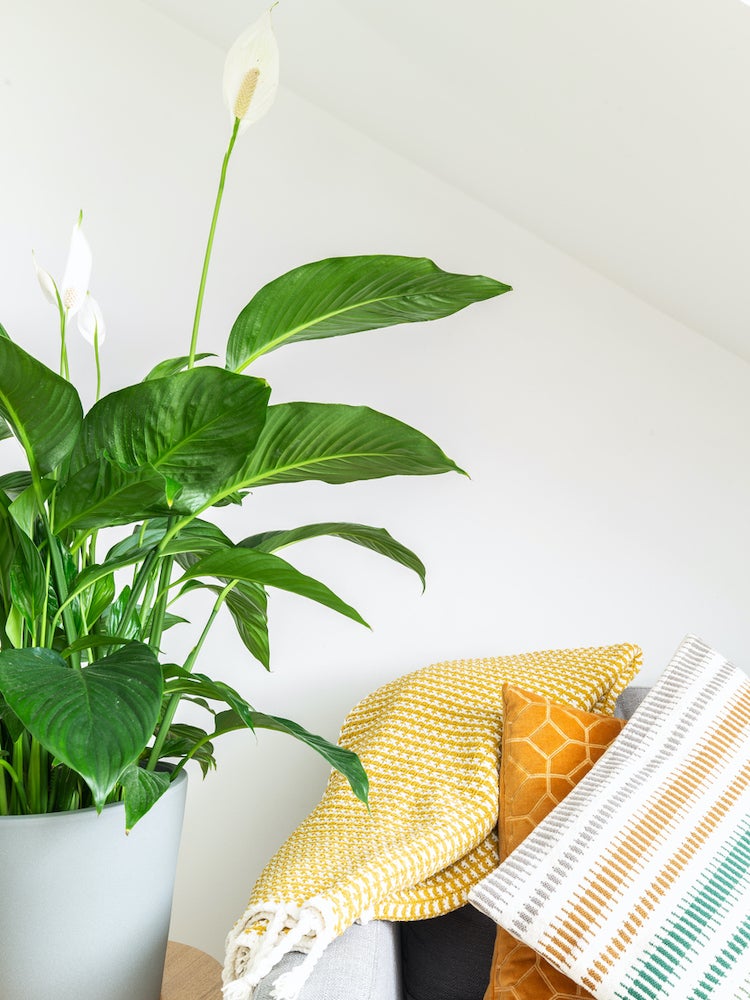
The Peace Lily (Spathiphyllum ‘Mauna Loa’) is an easy-care and attractive houseplant. It tolerates low light and moderate to high humidity, is characterized by its thick, glossy leaves, and dramatic white blooms.
Weeping Figs

Weeping Figs (Ficus benjamina) are some of the most common indoor trees, typically growing between four and six feet tall. It thrives in moderate to bright light and humidity, but be warned, the Weeping Fig doesn’t like to be moved around!
Related: 7 Trees You Can Grow Indoors
Golden Pothos
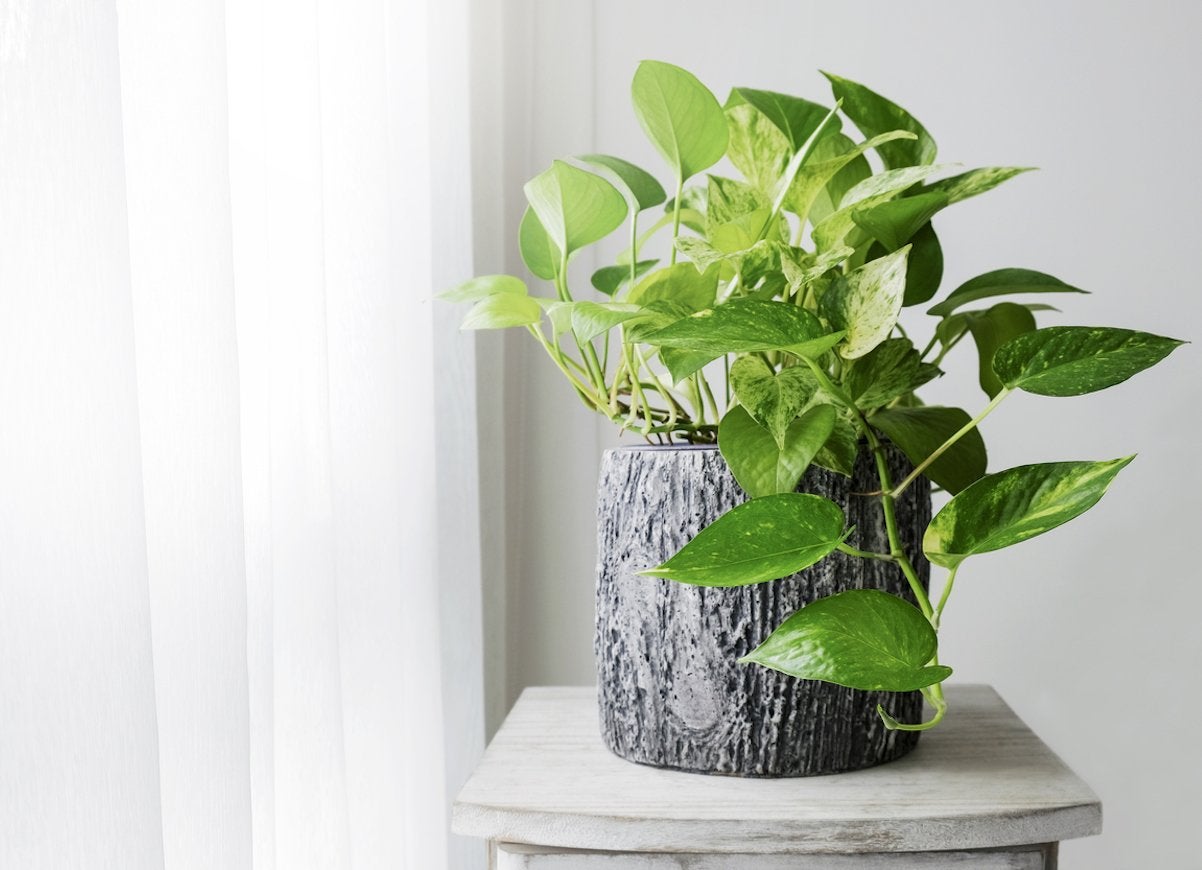
A climbing vine, Golden Pothos (Epipiremnum aureum) features lush, heart-shaped leaves and requires little care to flourish. Golden Pothos tolerates low light, low humidity, and low temperatures, making it one of the top-selling houseplants in the country.
Snake Plant
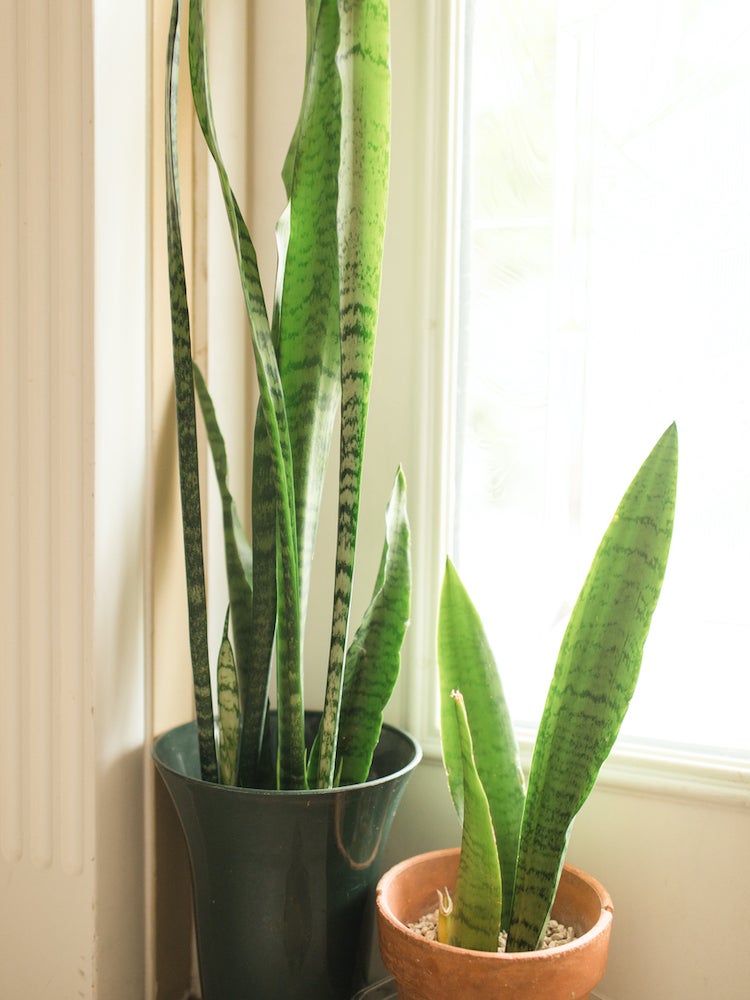
The Snake Plant (Sansevieria trifasciata), or Mother-in-Law’s Tongue (Sansevieria laurentii), is another hardy, easy-to-grow houseplant. It features vertical leaves with spiked tips, which have a deep, glossy green and yellow or white stripes. Snake Plants do best in low to moderate light and low to moderate humidity.
Related: Here’s What Your Favorite Houseplants Look Like in the Wild
Gerbera Daisy
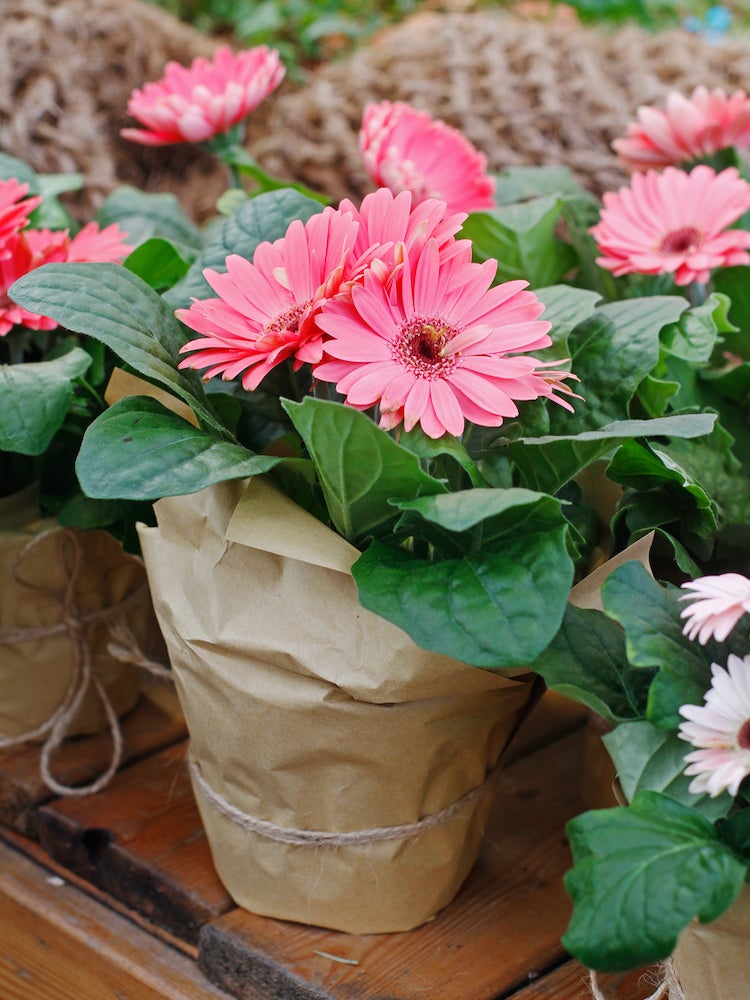
The large, vivid blooms and lush green leaves of Gerbera Daisies (Gerbera jamesonii) make them a very popular perennial that, with a little care, can be encouraged to bloom all year. Also known as African Daisies, these plants grow about a foot tall and are a popular choice for cut blossoms.
Related: 8 Plants Never to Grow Indoors
Bamboo Palm
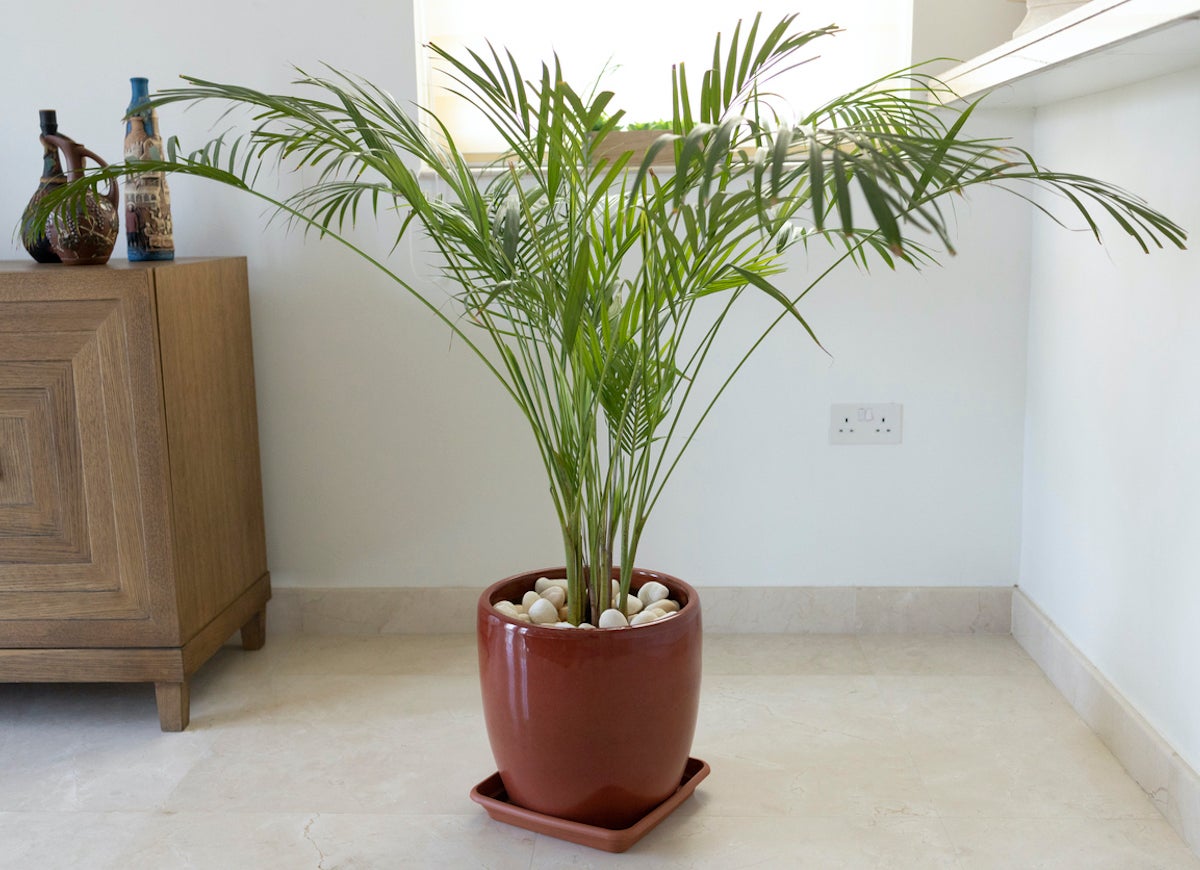
The Bamboo Palm (Chamaedorea sefritzii) has slender, cane-like stems and deep green, feathery leaves. They grow from ten inches to an average maximum height of about 15 feet.
Houseplants Health Benefits
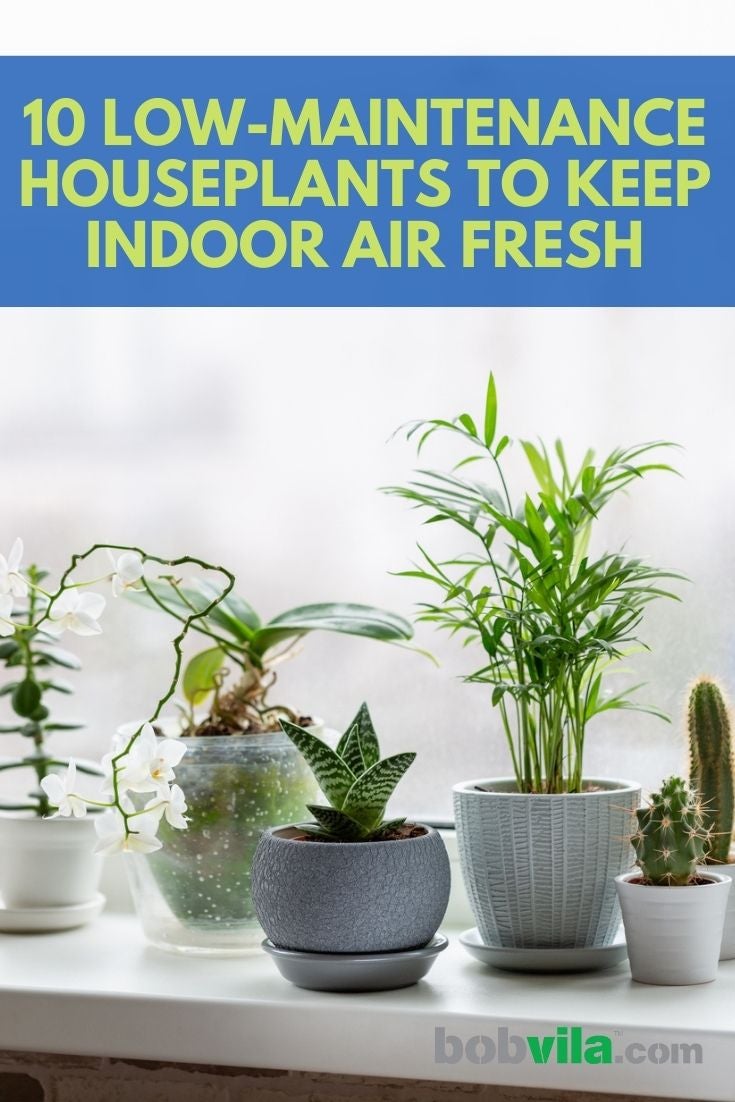
Even if houseplants are cleaning the air as vigorously as you thought, there are still many other health benefits for keeping them around the house.

